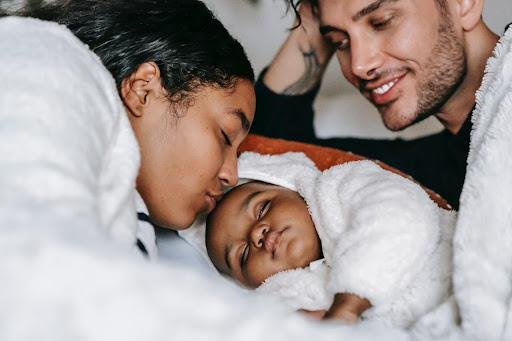
Providing a safe and nurturing environment for your child to grow and spend their time is the primary responsibility of a parent. All parents want the best for their children. No matter how busy life gets or how tiresome it is to manage work and parenting, a child’s safety and wellbeing are always on a parent’s mind. That is why the choice of a daycare becomes so much more important.
With so many recent reports of neglect and abuse in daycares, it is essential that you play an active role in selecting the right daycare for your child. The incidents of abuse are increasing by the day, and if you’re not careful, your child could end up in an unfortunate situation that leaves them traumatized for life.
If you think your child has faced abuse or neglect, then there are a few courses of action for you to take. You can file a report with the police and sue daycare management for abuse. We understand the need for awareness of abuse symptoms and also the rights of parents and children. That is why, in this article, we will talk about daycare abuse and what you can do about it. Let’s get into it right away!
What is Meant by Daycare Abuse?
There are four categories of abuse that are considered illegal, and you can sue a daycare for them. It includes physical abuse, sexual abuse, emotional abuse, and neglect. An abuser is often a person of authority who can intimidate and scare a child into staying quiet and not speaking up about their experience at home.
Physical Abuse
Physical abuse could include spanking, violent wrist grabs, slapping, pushing, or shoving a child. It can also include causing injury due to neglect or active violence. Essentially, any kind of violent or aggressive physical treatment of your child at daycare can be considered physical abuse. This kind of abuse usually comes to the surface in the form of scars, injuries, bruises, etc.
Sexual Abuse
Sexual abuse is another common kind of complaint registered by parents against daycares. It can include any form of touch to a child’s genitals, penetration, assault, etc. It can also involve taking pictures or making videos of your child abused or naked.
Emotional Abuse
Emotional abuse is much harder to detect, but it can have the same severity of impact on your child’s wellbeing. Emotional abuse is usually defined as any behavior or treatment that harms your child’s physical, cognitive, or behavioral development. Emotional abuse is often practiced by caregivers in the form of abusive language, lack of empathy, and feelings of insecurity.
Neglect
Neglect is a passive form of abuse, but it can still hurt your child just as much. Some examples of neglectful treatment include not changing a child’s diaper, not giving them food at mealtimes, or not supervising their activities. Neglect is often seen in large daycares with fewer or unlicensed childcare professionals and a higher number of children.
What Should You Do to Prevent an Abusive Experience for Your Child?
The first thing that you can do is to make sure you choose the right daycare for your child. Here are all the questions that you should ask them before enrolling your child:
- What is the staff/child ratio? Look for a facility with a low ratio, ideally about 3 to 1
- Does the center offer an organized program of activities?
- What kind of food and drinks are provided?
- Is rest time provided, and how is it supervised?
- Does the center have a nurse and first aid available?
- Has the center suffered any recent safety incidents?
- Is the center monitored by CCTV? Does it cover all areas?
- How is discipline enforced?
- Is there an open-door policy for parents? Run away from any facility that has restricted visiting hours!
- Any other questions you feel the need to ask
Then, you need to visit the center to see everything for yourself. Here are the things that you need to take extra notice of:
- The overall atmosphere of the facility. Is it a fun and safe place?
- What is the staff/child ratio?
- What is the staff’s behavior? Do they seem to enjoy their jobs? Is there any tension?
- Are there any safety issues? Are all the doors made of glass, so no child wanders outside the view of the staff?
Common Signs of Daycare Abuse
Your responsibility doesn’t end with choosing the right facility. You also need to monitor your child’s behavior for any signs of abuse. Here are a few red flags to look out for:
- Unexplained phobias
- Fear or antipathy towards going to the daycare center
- Mood swings
- Unexplained changes in behavior
- Aggressive behavior
- Infantile behavior (unless your child is an infant)
- Bed-wetting (if there was no problem before enrollment)
- Toilet-training regression
- Anything that your gut instinct tells you isn’t right.
- Fear of going to daycare or clinging to the parent at drop-off
- Flinching when touched
- Poor concentration or memory (this is found more often in older children)
- Increased affection-seeking behavior, such as sitting on your lap, clinging, or asking for hugs
- Trauma or redness to the genital area, including bleeding or the child having a hard time sitting down (a sign of sexual abuse)
- Torn or bloodstained clothing
- Development of an STD
Exercise Your Rights as a Parent
The answer to “Can I Sue for Daycare Abuse?” is an absolute yes. If you think your child has been dealt with any kind of abuse discussed above, you may have grounds to file a lawsuit against the daycare. If you’re looking for legal services to provide advice, then get in touch with us today!


